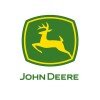Filter interviews by
Gujarat Food-web Interview Questions and Answers
Be the first one to contribute and help others!
Interview questions from similar companies

I applied via Referral and was interviewed before May 2017. There was 1 interview round.
(3 Questions)
- Q1. How to bridge gap between simulation results and test results?
- Ans.
To bridge the gap between simulation results and test results, it is important to validate the simulation model against real-world data and adjust parameters accordingly.
Validate the simulation model by comparing its predictions with actual test results
Adjust simulation parameters based on discrepancies between simulation and test results
Use sensitivity analysis to identify key parameters affecting the simulation outco...
- Q2. Full vehicle meshing methodology and sizing used
- Ans.
Full vehicle meshing methodology and sizing used in simulation process
We use a combination of structured and unstructured meshing techniques to ensure accurate representation of the vehicle geometry
Mesh sizing is determined based on the complexity of the geometry and the desired level of detail in the simulation
We prioritize mesh quality to capture important flow features and structural behavior
Examples of meshing soft...
- Q3. Any case study where you failes and how did you overcame that hurdle?
- Ans.
Yes, I once failed to meet a project deadline due to miscommunication. I overcame it by improving communication and setting clear expectations.
Miscommunication led to missing project deadline
Identified communication breakdown and addressed it
Improved communication channels and set clear expectations
Successfully completed future projects on time

Executive Assistant Interview Questions & Answers
Honda Motorcycle & Scooterposted on 21 May 2020
I applied via Naukri.com and was interviewed before May 2019. There were 4 interview rounds.
Interview Questionnaire
1 Question
- Q1. How much have experience in same profile
Interview Preparation Tips

Senior Accounts Executive Interview Questions & Answers
RSPL Groupposted on 11 Nov 2019
I applied via Naukri.com and was interviewed before Nov 2018. There was 1 interview round.
Interview Questionnaire
1 Question
- Q1. Account, gst related
Interview Preparation Tips

I applied via Naukri.com and was interviewed before Jun 2019. There were 3 interview rounds.
Interview Questionnaire
2 Questions
- Q1. LTE project description
- Q2. 5G call flow, phy layer question
Interview Preparation Tips
Guys, don't waste time in VVDN if you want a good salary.

Interview Questionnaire
6 Questions
- Q1. Why did you choose this field
- Ans.
Passionate about technology and problem-solving
Fascinated by the rapid advancements in technology
Enjoy solving complex problems and puzzles
Opportunity to make a positive impact on society
High demand for technical skills in the job market
Personal interest and curiosity in understanding how things work
- Q2. How to decrease the scarp level?
- Ans.
To decrease scrap level, implement quality control measures, optimize production processes, and train employees.
Implement quality control measures to identify and rectify defects early on.
Optimize production processes to minimize waste and improve efficiency.
Train employees on proper handling and production techniques to reduce errors.
Regularly monitor and analyze scrap data to identify patterns and areas for improveme...
- Q3. What is your salary expectation
- Ans.
I am open to discussing salary based on the responsibilities and requirements of the position.
I believe that compensation should be fair and competitive within the industry.
I am more interested in the overall package, including benefits and growth opportunities.
I am open to negotiation and would like to learn more about the company's compensation structure.
I am confident that my skills and experience warrant a competit...
- Q4. What's your qualification...
- Ans.
I have a Bachelor's degree in Computer Science and 5 years of experience in software development.
Bachelor's degree in Computer Science
5 years of experience in software development
- Q5. I am completed my ug degree B.Sc (computer science)
- Q6. How many percentage did you scored
- Ans.
I scored 85% in the technical team interview.
I scored 85% in the technical team interview.
My score was 85% in the technical team interview.
I achieved a score of 85% in the technical team interview.

Interview Questionnaire
4 Questions
- Q1. Question on stability and my impact on the year 2020
- Q2. Stability is important, interviewer can determine ones character on how stable you are. Basically it refers to more time spent in organization gives how loyal and patience you have. Off course stability ma...
- Q3. My Impact on 2020 and how I contributed during these challenging days
- Q4. No one was excluded with this. To stand different, one has to quickly understand the new normal. Patience, hard work, self motivation, empathy and delivering what committed are few key features. This will ...

Interview Questionnaire
12 Questions
- Q1. LTE Architecture
- Q2. Interface between LTE
- Ans.
Interface between LTE refers to the connection between the LTE network and other networks or devices.
LTE interfaces with other cellular networks such as 3G and 2G through inter-RAT handover
LTE also interfaces with non-cellular networks such as Wi-Fi and Ethernet through evolved packet core (EPC)
LTE devices interface with the LTE network through the air interface using radio frequency signals
LTE also interfaces with cor...
- Q3. What is X2 interface
- Ans.
X2 interface is a communication interface between two eNodeBs in LTE network.
X2 interface is used for inter-cell handover and load balancing.
It is a point-to-point interface that connects two eNodeBs.
X2 interface is used for exchanging control and user plane data between eNodeBs.
It is a critical interface for LTE network performance and reliability.
X2 interface supports various protocols such as S1AP, GTP, and RANAP.
- Q4. Channels of LTE
- Ans.
LTE has 20 MHz bandwidth divided into 100 resource blocks. Each resource block has 12 subcarriers and 7 symbols.
LTE has 20 MHz bandwidth
Divided into 100 resource blocks
Each resource block has 12 subcarriers and 7 symbols
- Q5. KPI of LTE
- Ans.
KPIs (Key Performance Indicators) of LTE include throughput, latency, coverage, and call setup success rate.
Throughput measures the amount of data that can be transmitted over the network in a given time period.
Latency measures the time it takes for data to travel from the source to the destination.
Coverage measures the area where the network signal is available.
Call setup success rate measures the percentage of succes...
- Q6. What is CSFB?
- Ans.
CSFB stands for Circuit Switched Fallback, a technology that allows LTE devices to fallback to 2G or 3G networks for voice calls.
CSFB is used when a LTE device is unable to make a voice call over the LTE network.
It allows the device to switch to a 2G or 3G network for voice calls.
CSFB is a temporary solution until VoLTE (Voice over LTE) becomes more widely available.
CSFB can cause call setup delays and impact the user
- Q7. Why OFDMA technique used in LTE?
- Ans.
OFDMA is used in LTE to improve spectral efficiency and support multiple users simultaneously.
OFDMA allows for multiple users to share the same frequency band by dividing it into smaller subcarriers.
It also enables dynamic allocation of subcarriers to users based on their bandwidth requirements.
This results in better spectral efficiency and higher data rates.
OFDMA is also resistant to interference and fading, making it...
- Q8. Differentiate FDD & TDD
- Ans.
FDD and TDD are two different duplexing techniques used in wireless communication.
FDD stands for Frequency Division Duplexing and TDD stands for Time Division Duplexing.
In FDD, separate frequency bands are used for uplink and downlink communication, while in TDD, the same frequency band is used for both uplink and downlink communication.
FDD is used in technologies like 2G, 3G, and 4G LTE, while TDD is used in technolog...
- Q9. What is massive MIMO?
- Ans.
Massive MIMO stands for Massive Multiple Input Multiple Output. It is a wireless communication technology that uses a large number of antennas at the base station to improve network performance.
Massive MIMO uses a large number of antennas at the base station to improve network performance.
It can significantly increase the capacity and coverage of wireless networks.
It works by using spatial multiplexing to transmit mult...
- Q10. LTE Channels
- Q11. LTE Call Flow
- Q12. Type of Handover & its process
- Ans.
Handover is the process of transferring an ongoing call or data session from one cell to another.
There are two types of handover: Hard Handover and Soft Handover.
Hard Handover involves breaking the connection with the current cell before establishing a connection with the new cell.
Soft Handover involves establishing a connection with the new cell before breaking the connection with the current cell.
The handover process...
Skills evaluated in this interview

Interview Questionnaire
6 Questions
- Q1. 1. Process, How you handing manpower
- Q2. Technical in two Wheeler sector
- Q3. Customer satisfaction relevant
- Q4. Business development planning
- Q5. Problem solving
- Q6. Complete handing
Interview Preparation Tips

I applied via campus placement at Anna University and was interviewed in Dec 2020. There were 9 interview rounds.
Interview Questionnaire
2 Questions
- Q1. Do you know how to team handling?
- Ans.
Yes, I have experience in team handling.
I have successfully led a team of 10 members in my previous role.
I have experience in assigning tasks, setting goals, and monitoring progress.
I believe in effective communication and fostering a positive team environment.
I have conducted regular team meetings to address any issues and provide guidance.
I have also provided coaching and mentoring to team members to enhance their sk
- Q2. Are you willing to relocation?
- Ans.
Yes, I am willing to relocate for the Team Leader position.
I am open to moving to a new location for career growth and opportunities.
I understand that relocation may be necessary to effectively lead and manage a team.
I am flexible and adaptable to new environments and cultures.
I have previous experience relocating for work and have successfully integrated into new teams.
Interview Preparation Tips

Interview Questionnaire
5 Questions
- Q1. What is back compression?
- Q2. How many types of smokes are there?
- Ans.
There are two types of smokes: first-hand smoke and second-hand smoke.
First-hand smoke is the smoke inhaled directly from a cigarette or other tobacco product.
Second-hand smoke is the smoke exhaled by a smoker or the smoke from the burning end of a cigarette.
Second-hand smoke is also known as passive smoking and can be harmful to non-smokers.
There are also different types of tobacco products that produce smoke, such as
- Q3. What is the function of alternator?
- Ans.
Alternator is a device that converts mechanical energy into electrical energy.
It is used in vehicles to charge the battery and power the electrical system.
It works by using a magnetic field to generate an alternating current.
The output voltage is regulated by a voltage regulator.
It is an essential component of the vehicle's charging system.
Examples of vehicles that use alternators include cars, trucks, and motorcycles.
- Q4. Difference between petrol and diesel engine?
- Ans.
Petrol and diesel engines differ in fuel type, combustion process, and efficiency.
Fuel type: Petrol engines use gasoline while diesel engines use diesel fuel.
Combustion process: Petrol engines use spark ignition while diesel engines use compression ignition.
Efficiency: Diesel engines are generally more fuel-efficient than petrol engines.
Examples: Petrol engine - used in most cars; Diesel engine - used in trucks and hea
- Q5. What is the function of differential?
- Ans.
The differential is a component in a vehicle that allows the wheels to rotate at different speeds.
It helps with turning by allowing the outside wheel to rotate faster than the inside wheel.
It also helps with traction by allowing the wheel with the most grip to receive more power.
Without a differential, the wheels would be locked together and unable to rotate at different speeds.
Examples of vehicles that use differentia
Tell us how to improve this page.
Interview Questions for Popular Designations
Interview Questions from Similar Companies
Gujarat Food-web Reviews and Ratings
based on 3 reviews
Rating in categories
|
Assistant Manager - Production
5
salaries
| ₹6.6 L/yr - ₹11.3 L/yr |
|
Chartered Accountant
3
salaries
| ₹5 L/yr - ₹6.7 L/yr |
|
R&D Executive
3
salaries
| ₹3.1 L/yr - ₹4.2 L/yr |

WNS

FIS

Vivo

UST
Calculate your in-hand salary
- Home >
- Interviews >
- Gujarat Food-web Interview Questions



